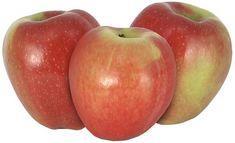
An overhang of southern hemisphere fruit is threatening to disrupt the start of the northern hemisphere apple season in Europe.
The main problems at this point in the campaign are with season-closer Braeburn, particularly from New Zealand. Even good quality fruit could make only 200-300p a carton on some wholesale markets this week.
The cause, as ever, is a number of factors, not least wildly inaccurate forecasts for the European apple crop last season.
“We have not supplied any more fruit this year than last, in fact we are slightly down on last year’s figure in the UK,” said Pipfruit New Zealand chairman Ian Palmer. “But one of our first problems was that last year’s European crop was underestimated by about 750,000 tonnes. That equates to some 41 million cartons, to put that in context, our entire export crop is about 18 million cartons.”
Braeburn is the under-pressure variety as it is the last seasonal apple to be sold and the Chileans are suffering also. “The apple season has been difficult in all markets, especially on Braeburn, the prices for which have fallen in all European markets,” said Rodrigo Durán, commercial manager at exporter David Del Curto. “That said, the UK market has been a little better as business is based on programmes with traditional customers and this situation protects the UK market from such violent price fluctuations.”
But part of the problem this season is that consumption has been disappointing. While some in New Zealand may feel that retailers should have reacted more quickly to the sluggish movement off their shelves with promotional offers, cross category competition has also played a role.
“Generally apple sales in August have been lower than programmed as shoppers seem to have turned to summer fruits in the good weather,” said one leading importer.
“In general, because of this, the whole apple market has been difficult since July. But this week, now that schools are back, we are seeing an upturn and sales are actually above programme.”
Martin Dunnett, commercial director at Capespan, believes the market is experiencing a longer term change.
“It is becoming ever more apparent that there is interference in the apple category from summer fruits,” he said. “The whole season is changing and there is definitely a longer window for summer fruit.”



